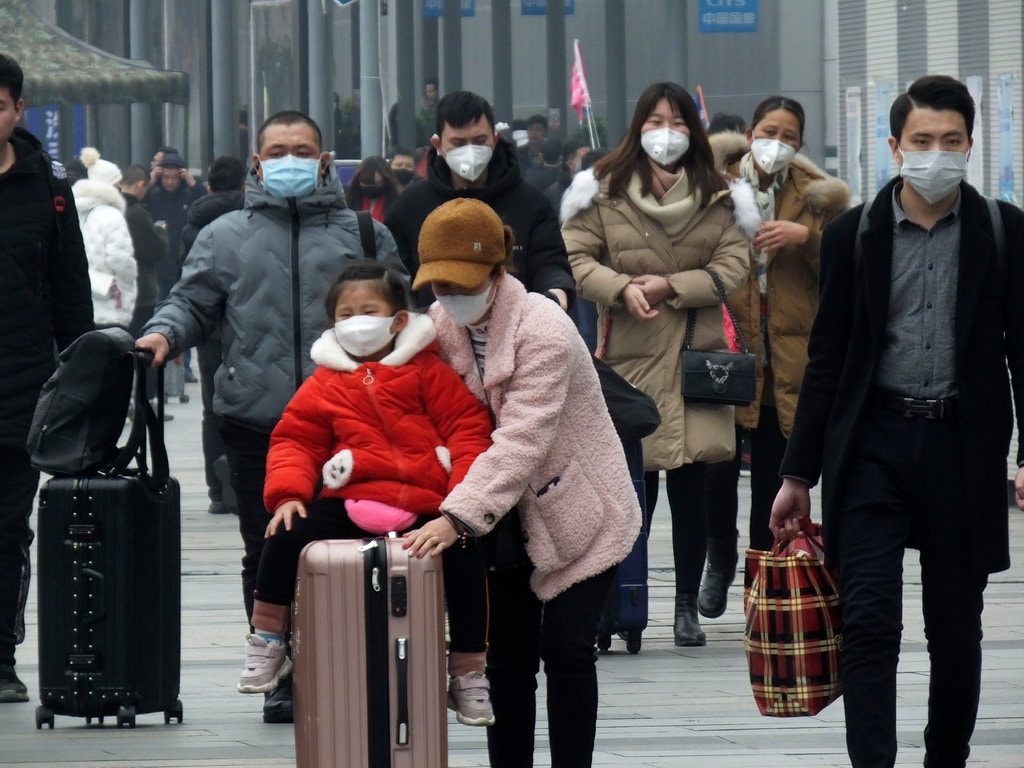The Wuhan Virus: What Is It And How Is It Related To Exotic Wildlife Sold In A Market?
All you need to know about the outbreak.
As of Wednesday, 22 January, the mysterious virus that originated in Wuhan, China, has killed 17 and infected more than 544 people
And it seems that the virus, named after the Chinese city it originated from, will continue to spread.
According to Business Insider, China estimates their people will take three billion trips to their hometowns to celebrate Chinese New Year this weekend, in what is the largest annual human migration in the world.
Fortunately, in swift response, local disease control authorities have placed the entire city of Wuhan on lockdown.
The quarantine order that begins Thursday, 23 January, stops all public transportation from coming into or leaving the city and grounds all planes at the Wuhan airport.
But you can never be too careful.
Although the virus has yet to reach Malaysian shores, be prepared with information to stop the spread of infection:
1. What is the Wuhan virus?
The Wuhan virus, officially named 2019-nCOV, is a new virus - a strain never identified in humans until Chinese authorities first reported cases of it in December last year.
According to the US Centres for Disease Control and Prevention (CDC), it is a type of coronavirus.
Coronaviruses are actually common in many different species of animals and are named for the crown-like spikes on their surface. Rarely do these coronaviruses evolve and infect humans.
Coronaviruses were first identified in the 1960s and since then, there have been seven strains known to infect humans.
Four of these typically cause mild to moderate upper respiratory tract illnesses like the common cold, with well-known symptoms such as sore throat, cough, and headache.
The other three have more recently, widely, and severely affected human health:
- Severe acute respiratory syndrome (SARS) coronavirus, which killed almost 800 people in 32 countries in 2003,
- Middle East respiratory syndrome (MERS) coronavirus, which was first reported in Saudi Arabia in 2012, and
- The current and latest Wuhan coronavirus or 2019-nCOV.
2. Is it the same as the influenza virus that was also circulating Malaysia in January?
No, they are completely different viruses.
According to the World Health Organisation (WHO), the influenza virus, which causes the common flu, is a type of orthomyxovirus, a different family of viruses compared to the coronaviruses.
There are two main types of influenza virus: Types A and B. The influenza A and B viruses routinely spread in people and are responsible for the seasonal and recurring flu epidemics every year.
3. How does this new coronavirus affect humans?
According to CNN, the virus makes people sick, usually with a mild to moderate upper respiratory tract illness, similar to the other coronaviruses as well as the common flu.
Symptoms include a runny nose, cough, sore throat, possibly a headache, and maybe a fever, which can last for a couple of days.
However, there is a chance for the virus to cause a more deadly, lower respiratory tract illness like pneumonia, but it usually happens only to those with a weakened immune system, such as the elderly and the very young.
4. How could the virus spread from animals to humans?
Actually, the ability of a virus to mutate and newly infect a human is not unusual.
Scientists think MERS started in camels, while SARS came from civet cats (although the virus orginated from bats).
While being able to link the new coronavirus outbreak to a seafood market in Wuhan, officials do not yet know what animal may have caused it.
Unfortunately, it may be difficult to pinpoint an animal as New Straits Times reported that the market had illegally peddled a menagerie of exotic wildlife such as camels, foxes, badgers, bamboo rats, hedgehogs, and snakes.
Scientists have said such "unnatural situations", where animals are brought together and often housed in bad conditions in close proximity to people, create easy opportunities for viruses to change between animals, and thus infect people.
A price list at one of the meat stalls in Huanan Market selling wildlife including wolf, fox, ostrich, camel, squirrel, and many more.
Image via Twitter @muyixiao5. How does it spread among humans?
Human coronaviruses most commonly spread from an infected person to others through:
- The air by coughing and sneezing,
- Close personal contact, such as touching or shaking hands,
- Touching an object or surface with the virus on it, then touching your mouth, nose, or eyes before washing your hands, and
- Rarely, faecal contamination.
6. Is there a cure for the disease?
According to The Telegraph, there is no specific treatment for coronaviruses - just as there is no treatment for the common flu.
Experts advise seeking care early, but most of the time, symptoms will go away on their own. Treatment in hospitals mostly aim to relieve symptoms by prescribing a pain or fever medication.
The CDC suggests a room humidifier or a hot shower to help with the sore throat or cough. They also recommend drinking plenty of fluids, staying home, and getting plenty of rest.
7. So, should you panic?
"No, I don't think we should panic, as panic is never a good approach," said Professor Paul Tambyah, from the department of medicine at National University of Singapore, as quoted by The Straits Times.
Instead, the professor asked the public to be concerned, be vigilant with hand hygiene, and if unwell, to seek medical attention or stay at home.
Furthermore, BBC reported that most of the those infected were the elderly, and those who died had suffered from other chronic diseases including Parkinson's disease and diabetes.
A doctor in Central Hospital of Wuhan donning full-body hazardous material suit while looking after patients.
Image via Daily Mail8. What can people do to prevent the spread?
There are currently no vaccines available to protect against the human coronavirus infection.
However, the CDC has recommended standard precautions to prevent any spread of infection that include:
- Regular handwashing, especially after direct contact with ill people and their environment,
- Covering mouth and nose when coughing and sneezing,
- Thoroughly cooking meat and eggs, and
- Avoiding close contact with anyone showing symptoms of respiratory illness such as coughing and sneezing.









